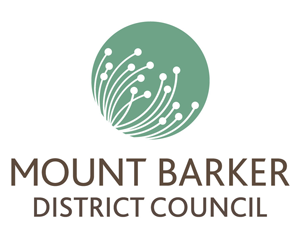Our journey
What council has achieved in the past in energy efficiency, renewable energy, sustainable transport or broader sustainability
Mount Barker District Council has recently developed and adopted a new environment strategy that aligns our environmental objectives with strategic goals and guides our decision making on environmental initiatives within a monitoring framework. Council has also worked in collaboration with its partners in the region, on the Resilient Hills & Coasts adaptation framework to respond positively to the challenges and opportunities presented by a changing climate.
Mount Barker is a leader in wastewater management, recycling most wastewater for reuse and with the community potable water use approximately half of the national average of water per day (161L/day/per capita), it demonstrates community and council alignment. Each year an extensive revegetation program with local schools and volunteers sees 10,000 native shrubs, trees and groundcovers planted in addition to a partnership of 21 bushland sites with Bush for Life (BFL) program. The recent development of a waste to resources management plan will assist in diverting more waste from landfill.
Council has developed an extensive and unique environmental education program that engages and educates our wider local community on varied aspects of the environment and sustainability. This includes an online ‘virtual community’ where sustainability practices are promoted.
A 2017 energy efficiency audit has set emissions reduction targets, resulted in the installation of PV panels on Council Council’s administration centre and the completion of retrofit of lighting throughout the building.
What council hopes to achieve in the future in energy efficiency, renewable energy, sustainable transport or broader sustainability
Council aims to:
- reduce GHGs by 3% per year together with the community, based on the 2017 emissions profile
- implement adaptive responses to climate change
- increase Council’s renewable energy sources and improve energy efficiency
- build community awareness and support for best practices in sustainable development in urban and rural settings
- improve integration of energy efficiency considerations into the development process
- improve the accessibility of sustainable transport options
- reduce household mains water consumption by 10% per capita below 2017 levels by 2023
- minimise impacts of development on stormwater runoff and riverbank erosion
- reuse 100% of recycled wastewater
- reduce waste to landfill by 10% per capita
- improve the waste diversion rate
What council hopes to gain from being a member of the Cities Power Partnership
By joining the Cities Power Partnership, Mount Barker District Council hopes to connect and share information with other local government participants that will allow Council to increase its capacity to respond to climate change and increase its mitigation efforts. Mount Barker District Council is committed to being a low-carbon & resilient, biodiverse, liveable, water-wise and resource-efficient community.
